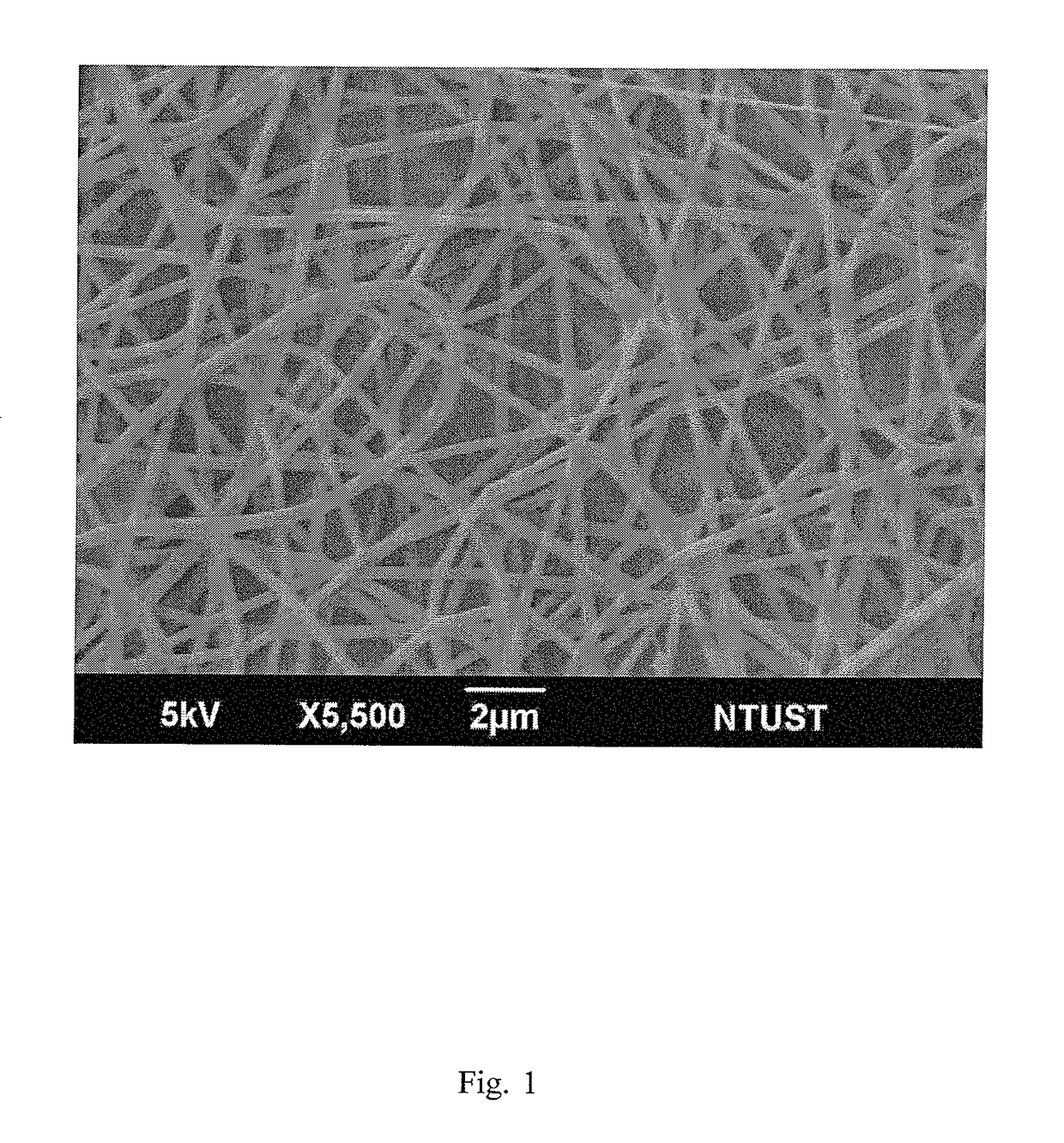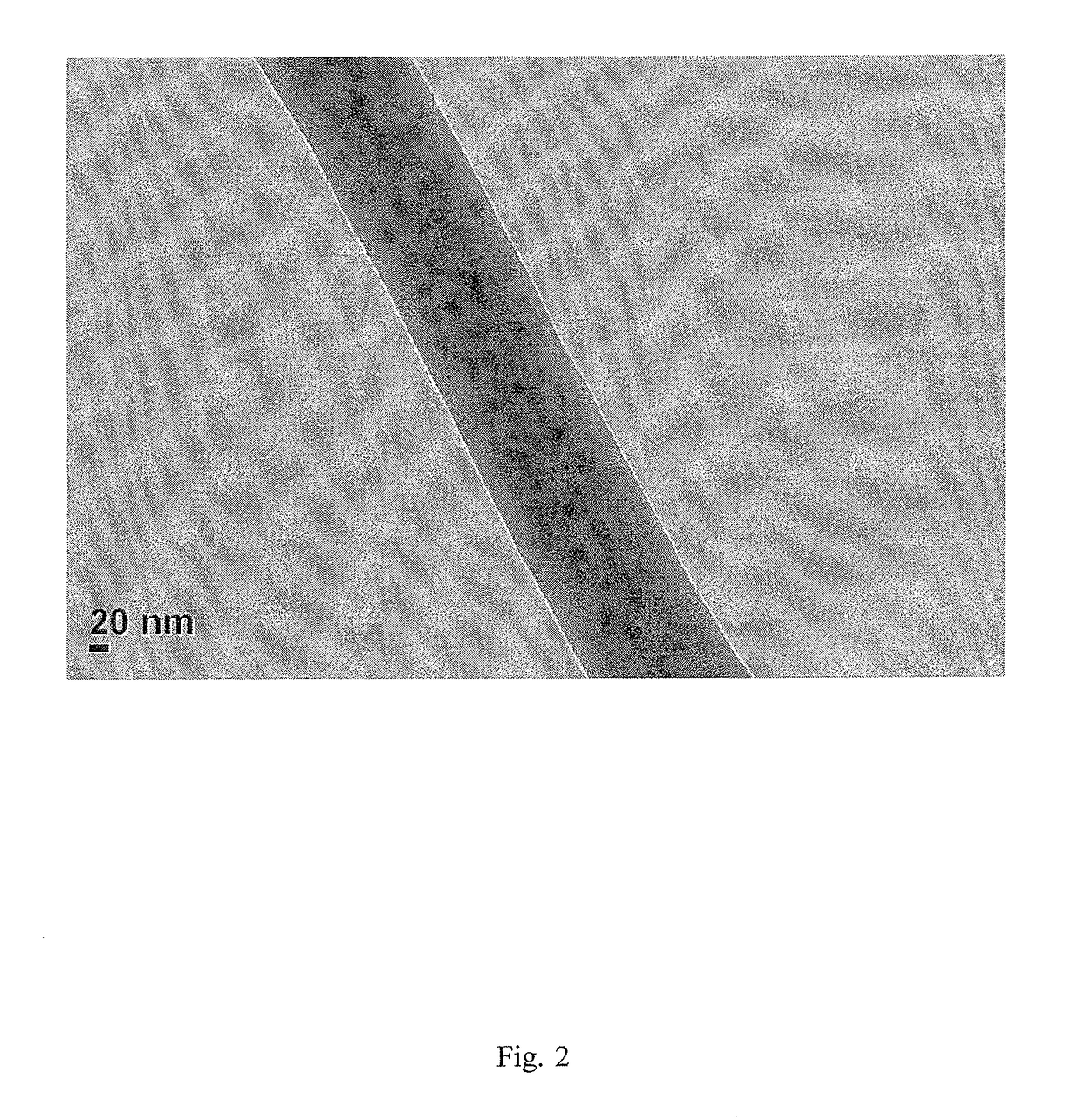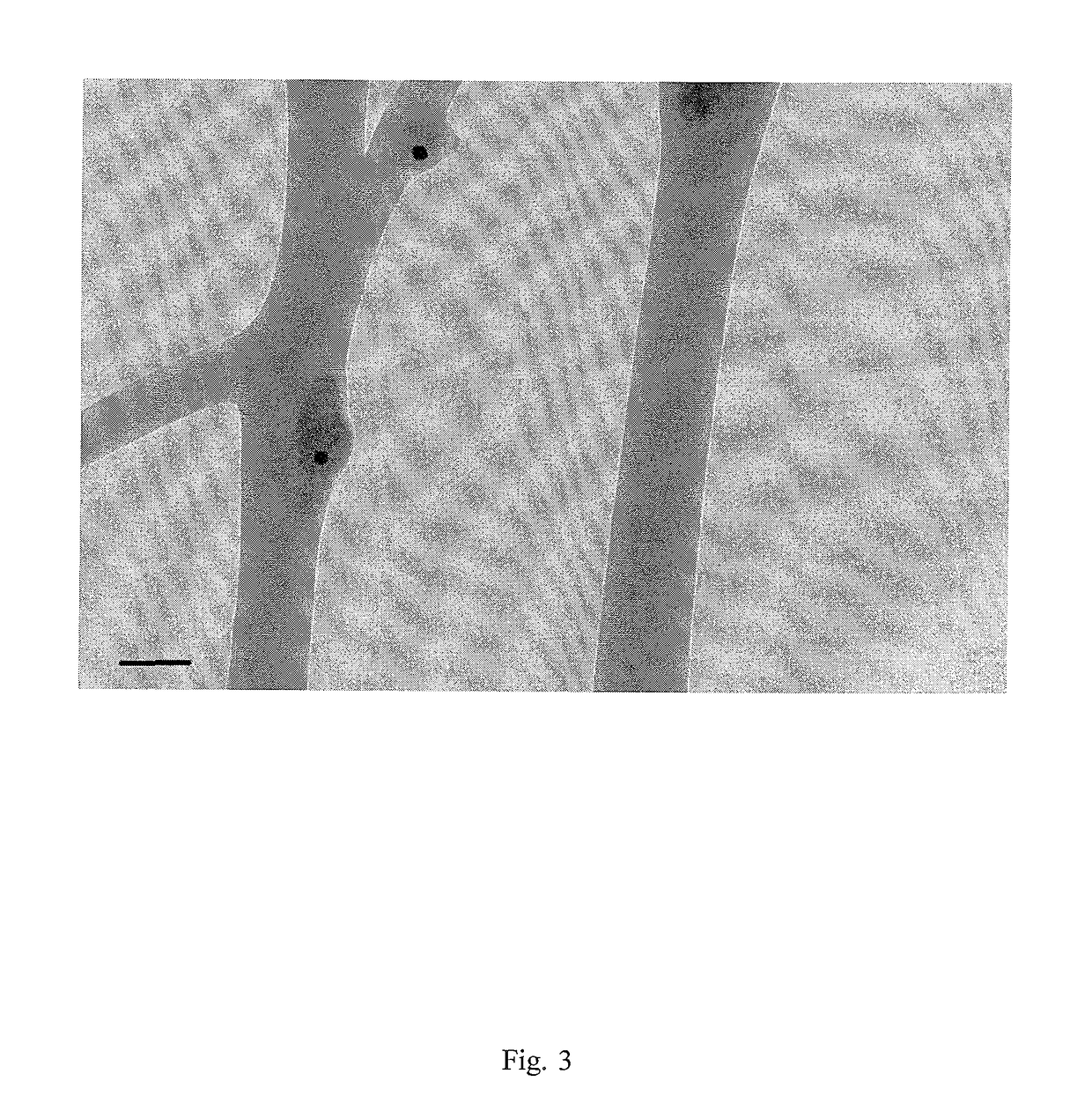Electrospun nanofibrous membranes and disposable glucose biosensor
a nanofibrous membrane and glucose biosensor technology, applied in biochemistry, instruments, enzymology, etc., can solve the problems of infiltration of substrates and electron transfer between enzyme membranes and electrodes, and achieve the effects of enhancing the sensitivity of glucose biosensors, low cost, and convenient us
- Summary
- Abstract
- Description
- Claims
- Application Information
AI Technical Summary
Benefits of technology
Problems solved by technology
Method used
Image
Examples
embodiment 3
[0051]The producing method of a PVA / GOx / potassium hexacyanoferrate(III) / graphene oxide electrospun solution having the steps of:
[0052]forming a 7 wt % PVA solution by mixing 7 g PVA and 93 g DI water; and
[0053]uniformly dispersing 14 mg GOx, 0.46 g of 0.25M potassium hexacyanoferrate(III) solution and 0.5% graphene oxide solution into 10 g of 7 wt % PVA solution to form the PVA / GOx / potassium hexacyanoferrate(III) / nano-gold electrospun solution.
[0054]The parameters of electrospinning are varied to reach suitable properties of electrospun nanofibrous membranes. The preferred embodiment of electrospinning parameters in the present invention may be applying 10 kV˜40 kV voltage, 0.1˜0.6 (ml / hr) flow rate, 10 cm˜25 cm distance from a catching screen to an extruded opening, 1˜2 hrs electrospining time or 40+ / −5% relative humidity. The electrospun nanofibrous membrane is spun on a PET film.
[0055]Preferred embodiments of the disposable glucose biosensor in the present invention are as follow...
embodiment 1
[0056]The producing method of the disposable glucose biosensor in the present invention comprising the steps of:
[0057]detaching the nanofibrous membrane of the PET film; and
[0058]attaching the nanofibrous membrane on the screen-printed carbon electrode to form the disposable glucose biosensor.
embodiment 2
[0059]The producing method of a cross-linked disposable glucose biosensor in the present invention comprising the steps of:
[0060]cross-linking the nanofibrous membrane by the ultra sound assistance cross-linked method with glutaraldehyde vapor;
[0061]detaching the cross-linked nanofibrous membrane of the PET film; and
[0062]attaching the cross-linked nanofibrous membrane on the screen-printed carbon electrode to form the disposable glucose biosensor.
[0063]Physical appearance, chemical properties and electrochemical properties of the present invention and the comparison with the conventional non-electrospun PVA film are as follows. The testing devices are an electrochemical analyzer, a scanning electron microscope (SEM) and a transmission electron microscopy (TEM).
[0064]With reference to FIG. 1, the SEM pattern shows an average diameter of the present invention is about 296+ / −48 nm. With reference to FIG. 14, the SEM pattern shows a surface appearance of the conventional non-electrospu...
PUM
| Property | Measurement | Unit |
|---|---|---|
| concentrations | aaaaa | aaaaa |
| temperature | aaaaa | aaaaa |
| diameter | aaaaa | aaaaa |
Abstract
Description
Claims
Application Information
 Login to View More
Login to View More - R&D
- Intellectual Property
- Life Sciences
- Materials
- Tech Scout
- Unparalleled Data Quality
- Higher Quality Content
- 60% Fewer Hallucinations
Browse by: Latest US Patents, China's latest patents, Technical Efficacy Thesaurus, Application Domain, Technology Topic, Popular Technical Reports.
© 2025 PatSnap. All rights reserved.Legal|Privacy policy|Modern Slavery Act Transparency Statement|Sitemap|About US| Contact US: help@patsnap.com



